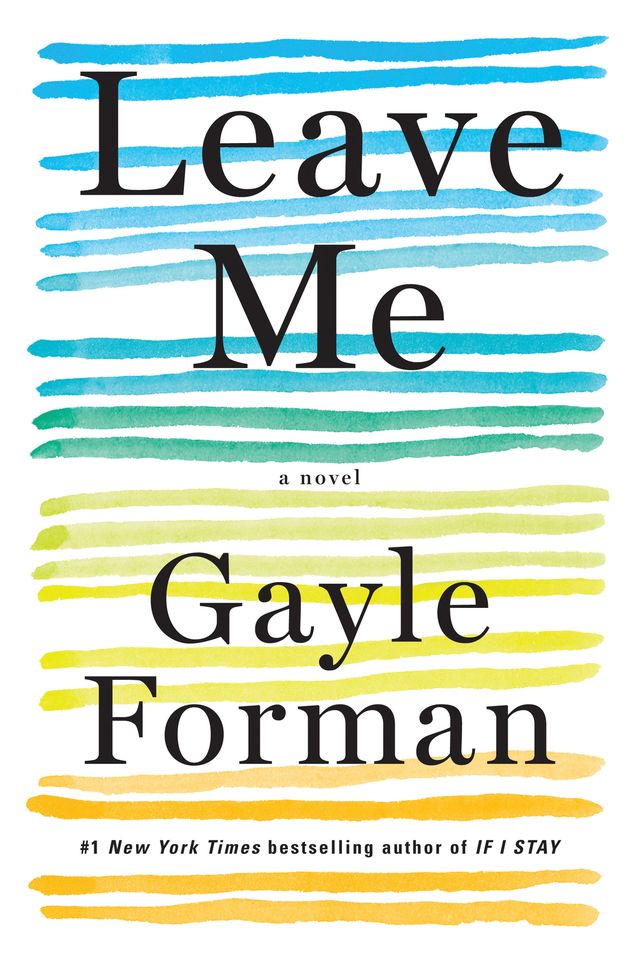Imagine this scenario: Successful working father loves his job, makes good money, enough to support the family. Working mother, meanwhile, is meh about her job and wants to spend more time with the kids. Who's most likely to quit and take on more childcare responsibilities?
The answer is so obvious it hardly bears stating. But flip the genders—successful mother, meh father—and suddenly things become a whole lot less obvious.
Or at least they did for me.
In our family, I was the one with the flourishing career. He was the one who wanted to spend more time at home with the kids. But it wasn't until I had an epic freak-out on the morning of my kids' annual school Field Day, screaming "I can't do it anymore!" while our girls looked on in wide-eyed horror, that we started to explore the obvious—and to question why it hadn't actually seemed obvious before.
When I had my older daughter, the decision that I would be the "default parent" was made by, well, default. I already worked from home as a freelance journalist, a career I'd devised with motherhood in mind, while my husband worked full-time as a research librarian (with salary and benefits). Also, she had come out of my vagina. You know, that old argument.
Then we adopted a child. I went from being a barely working journalist to a novelist, pecking away at the laptop while the baby napped (too broke for babysitters). Then, in what still feels like a Cinderella-esque turn, I became a bestselling author whose book was made into a movie.
Nevertheless, I remained the default parent: cooking meals, driving carpools, arranging tutoring, organizing playdates, scheduling doctors' appointments, rotating winter and summer clothes, planning vacations, chaperoning field trips. All this while juggling my ever more demanding job. Even with an after-school babysitter, I still fell into bed every night exhausted by the marathon I'd just completed, and by the thought of the one I knew I'd be starting eight hours later.
When I'd complain to my husband, he'd point out that he did what he could, given that he worked full time. The implication that I didn't—even though, like so many "part-time" workers, I crammed 40 hours of work into 25—made me want to throttle him.
The irony was that my husband, who'd been at the same job for over a decade, actually wanted to be more involved with childcare, and was ready to get away from the nine-to-five grind. But even so, aside from my occasional snarky challenges that he quit—which neither of us took seriously—the idea of him scaling back seemed appealing but fantastical, like an elf that might clean the kitchen while you sleep.
Until the Field Day freak-out.
I decided I would quit my job. Just temporarily, I told my husband. Until the kids were a little older. Books were eternal; childhood was not. We could live off savings and his salary for a few years.
My husband proclaimed my idea stupid. He pointed out that I liked my job and that I was well compensated. "Well, yes," I told him. "But I'm willing to quit."
And I was. There's that old adage about the definition of insanity: It's doing the same thing over and over, but expecting different results. So I was going to make the change happen. I was sad—I loved writing—but resolute, and relieved, too, which told me it was the right decision.
And so, we began the conversation we'd been too scared to have before, even though I was a proud feminist who once worked at Ms. Magazine and my husband did not have a macho bone in his body (he used to don dresses while playing guitar in a feminist hardcore band; see why I fell in love?). We were a multiracial family living in Brooklyn. Were we not the definition of enlightened?
Nope. When it came to issues of parenting, we were less Modern Family than Father Knows Best, clinging to some deeply ingrained, and very outdated, norms about family and money. We couldn't even talk about the fact that I out-earned him. It felt perilous. Consequently, any discussion of making me the official primary breadwinner (I already was the unofficial one) and him at least bearing half the childcare load was nearly impossible.
Holy shit. We had drunk the Patriarchal Kool-Aid.
Maybe that's not surprising given we were children of the 1970s. Second-wave feminism arrived a little late for our mothers, both of whom worked at times, but neither of whom had much financial agency in the family. And we saw this gender split in domestic duties reflected in many of our similarly "progressive," heterosexual Gen-X parent friends.
The more I thought about this blind spot, the more I realized its basis was as institutional as it was generational. In the United States, paternity leave is basically nonexistent. But in Sweden, for example, parents are granted around 480 days of parental leave. Sixty of those are reserved for fathers, which not only makes life much easier on the new mom but separates the biological act of birthing children from the practical act of raising them.
Then there's the cost of childcare. Unlike in France, where parents have access to subsidized childcare, childcare in the US is exorbitant. When my husband and I crunched the numbers, we realized that what we paid for just 12 hours of coverage a week amounted to 20 percent of his salary. We were lucky enough to be able to afford this, but many families can't. Such costs force working families to scramble to provide decent care and can discourage the lower-earning parent from returning to the workforce—because if the lion's share of their salary is going toward childcare, why bother?
But perhaps nothing reinforces the parental status quo like the wage gap. According to the Institute for Women's Policy Research, women still earn less than men in virtually every occupation, and working mothers earn so much less that they would have to work an additional six months for their annual salaries to catch up with what a man makes in a year. And if one parent in a heterosexual couple is going to give up or scale back an income, it makes sense that it's the person with the lower income—which is usually the mother.
That was no longer the case with us, but it wasn't until we realized we'd been marinating in all that Patriarchy Kool-Aid that we were able to reassess the picture somewhat objectively. We spent the whole summer discussing what it might mean for him to give up his full-time job and take on more of the domestic duties. How would it affect our finances? How would it affect our identity? How would it affect our sex lives? Once we did that, the solution for our family became not just obvious, but inevitable.
A year ago, my husband left full-time work to become a part-time freelancer. These days, we both work from home, passing off professional and domestic duties like teammates in a relay race. It's by no means perfect, but it feels right—just like parenting in 2016 should feel. Among the many benefits of the new setup—including less stress, exhaustion, and guilt—is the knowledge that my daughters are growing up with a model of family that assigns responsibilities according to factors other than gender.
And when the next Field Day rolled around, guess who went? The answer is, I hope, obvious.














